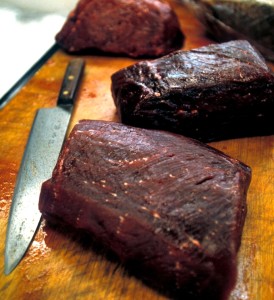Dunkin’ Doughnuts is under pressure to replace their polystyrene foam with cardboard like many food chains around the USA have already done. Dunkin’ Doughnuts has been experimenting for the past few years and “aims to have an alternative cup in two to three years”. Dunkin’ Doughnuts says that the cup has to meet a few different criteria but according to Venessa Wong from Bloomberg Businessweek, other chains’ customers are “pretty used to paper”. This article shows some of the comparisons between what food chains and restaurants face to go green but the contrasts between where McDonald’s is now, compared to Dunkin’ Doughnuts’s strategy is enthralling.
Here is the second article that this summary refers to. Back in 2012, Mc Donald’s choose to phase out polystyrene beverage cups since petroleum-based food packaging persists in the environment for hundreds of years after use and polystyrene might even be a human carcinogen. This switch to paper cups reduced restaurant waste by 30 percent, and saved an estimated $6 million per year. Interestingly enough, McDonald’s is now: “the largest purchasers of recycled paper, used in its food containers, bags, and napkins”. One thing is for sure, eco-friendly packaging is sweeping the globe and taking care of our earth is extraordinary.
Another great Green article from Green Halo
Track your recycling at www.greenhalosystems.com
Follow Green Halo on Twitter at http://twitter.com/greenhalousa

 Consumer groups have said e-cigarette companies use candy flavors, TV ads and music festival sponsor-ships to target youth, who doubled their use of the products in 2012 from a year earlier. Agency officials called today’s proposal a foundation that may lead to tighter control in the future.
Consumer groups have said e-cigarette companies use candy flavors, TV ads and music festival sponsor-ships to target youth, who doubled their use of the products in 2012 from a year earlier. Agency officials called today’s proposal a foundation that may lead to tighter control in the future.


